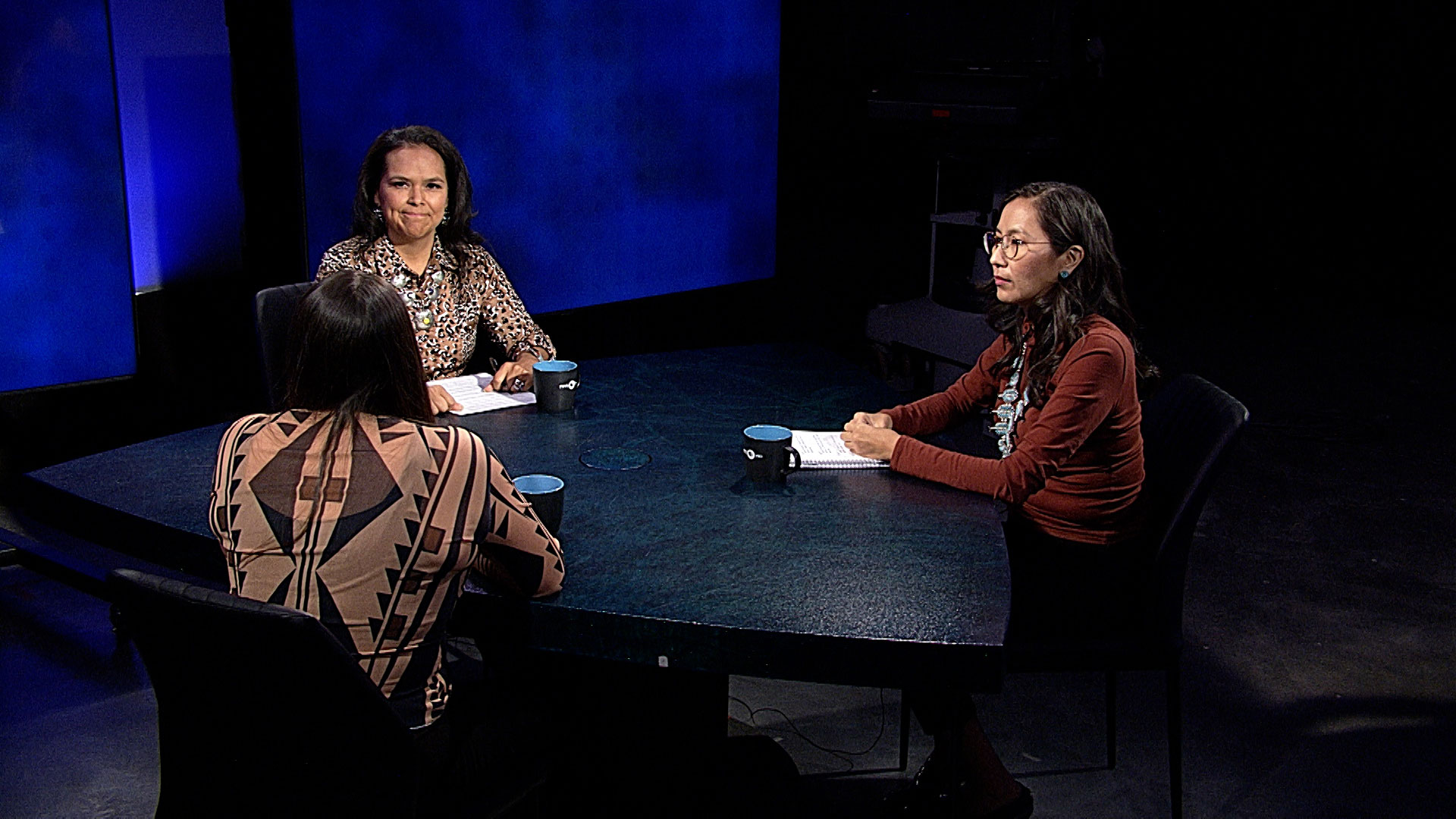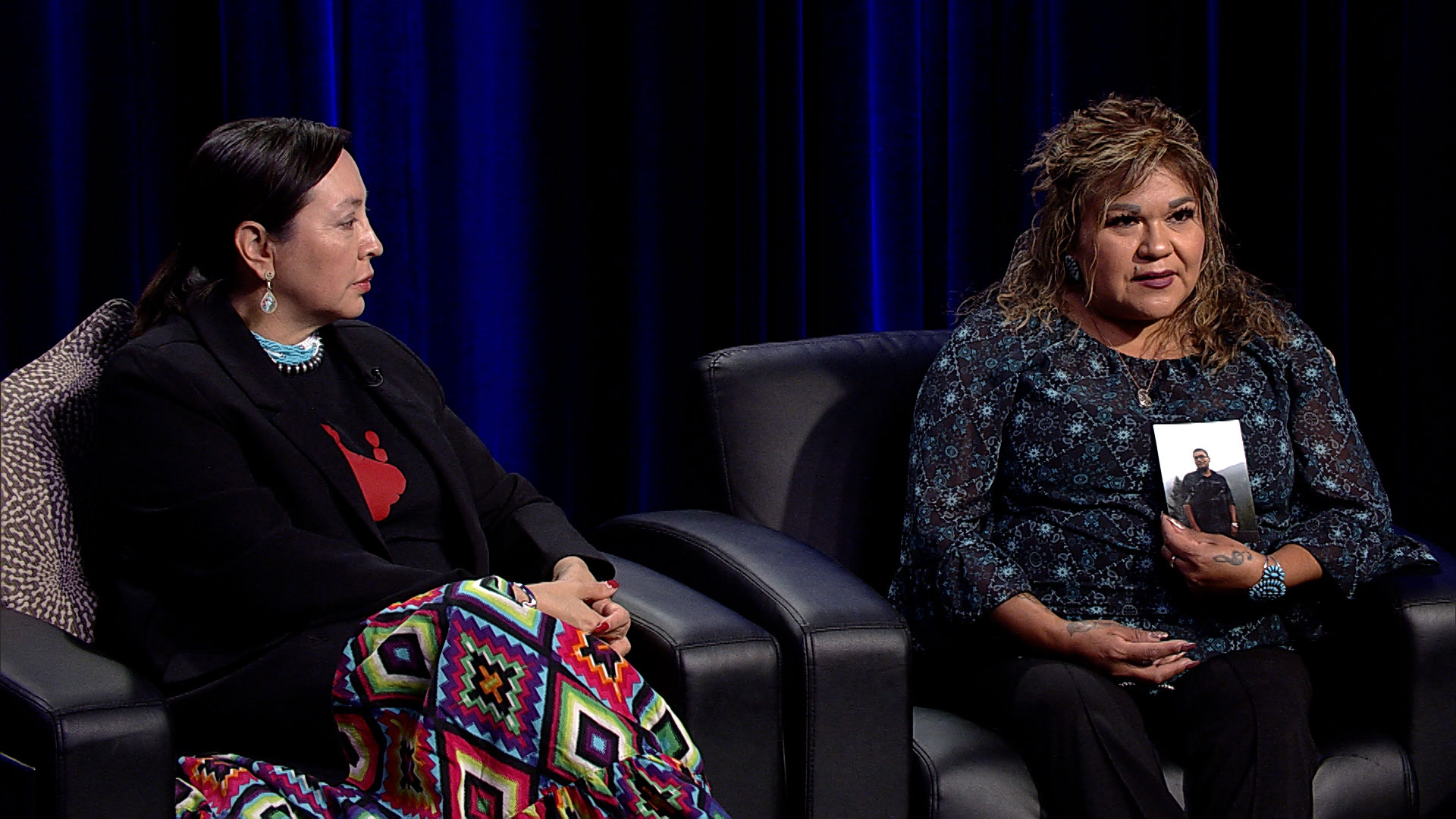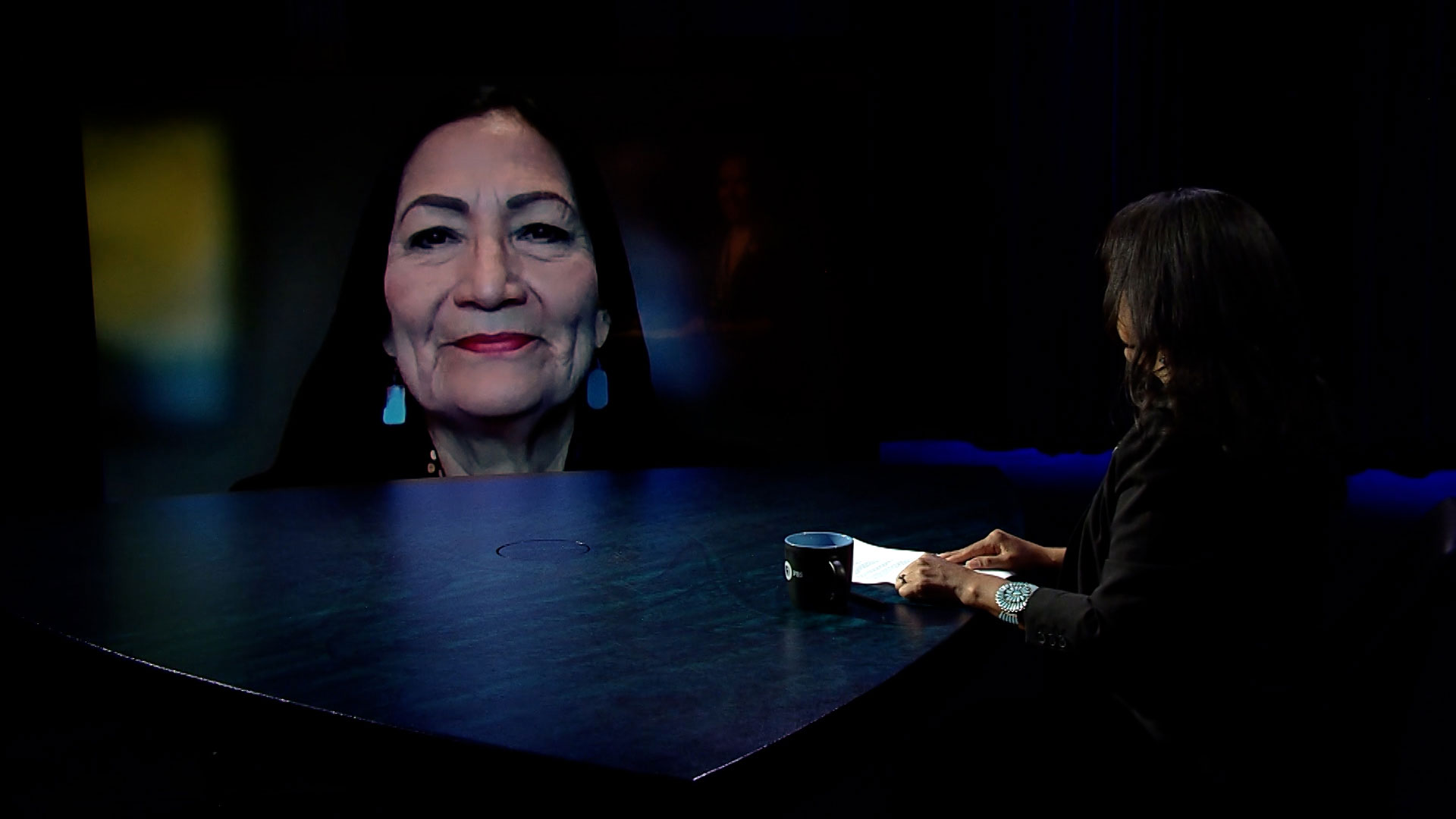Before it was disbanded, state task force gave hope to Indigenous families with missing or murdered loved ones
Zachariah Juwaun Shorty was a compassionate, fun-loving 23-year-old who enjoyed making music and tattooing. A father, a brother and a grandson, he would “fill the room with just a smile,” his mother, Vangie Randall-Shorty (Diné), told me shortly after we met last fall. She remembers occasions when, while in the car together, they’d see someone who appeared to be unsheltered, and he’d ask her to turn around so he could give them money or food.
He was “starting life,” Randall-Shorty said, when he went missing from Farmington on July 21, 2020. His body was found four days later in a field on the Navajo Nation. He died from gunshot wounds.
His murder remains unsolved.
Randall-Shorty has tirelessly pushed for answers. We met in October 2022 at the first annual “Missing in New Mexico” event, which lawmakers created earlier that year to connect people who have missing relatives with law enforcement. Randall-Shorty attended because she wanted officials to hear her story and take action. I watched as she told Raul Bujanda, special agent in charge of the FBI’s Albuquerque office, about her son’s case. Confusion between law enforcement agencies about which had jurisdiction and a lack of communication from those agencies about the status of the investigation despite the family’s requests for updates, she says, had stood in the way of justice for her son.
Those challenges are all too common for Indigenous families. Until about six months ago, New Mexico had its own state task force dedicated to finding solutions to the crisis. Then Gov. Michelle Lujan Grisham’s administration quietly disbanded the group.
Last week, I sat down with Randall-Shorty and Darlene Gomez, a task force member and attorney who represents 20 affected Indigenous families pro-bono, to talk about the group’s work and why they think a task force is still necessary. The interview will air tonight on New Mexico in Focus.
“When it first started I had hopes … not only myself, but other families had hopes of bringing their loved ones home, and in my case, you know, getting justice for Zach,” Randall-Shorty said about the Missing and Murdered Indigenous Women and Relatives Task Force. “With it ending, you know, where do we go from here is my question.”
Task Force members fulfilled a key mandate when they delivered wide-ranging recommendations in May 2022 that state and other government agencies can follow to help end the crisis. About a month later, the executive order Lujan Grisham issued to create the task force expired but the Indian Affairs Department continued to convene the group for another year, providing funding for events and a meeting facilitator.
During this year’s legislative session, there was speculation that Lujan Grisham would renew the executive order, according to some task force members and a couple lawmakers who advised them. Instead, conflict erupted between several members and the governor after she appointed James Mountain as Indian Affairs secretary. Mountain, a former governor of San Ildefonso Pueblo, was indicted in 2008 on charges of criminal sexual penetration, kidnapping and aggravated battery against a household member. Prosecutors later dropped the case. One task force member at a meeting in February said Lujan Grisham’s decision jeopardized the work they’d done to build trust with survivors of sexual violence and affected families.
But the governor defended her pick, and although her office has yet to submit Mountain for confirmation by the state Senate, he remains head of the agency. A few months after tensions flared, the agency quietly ended the task force.
Gomez said she learned the news at a summit the Indian Affairs Department hosted in June and told department staff they should make a public announcement, partly because some members weren’t present and partly to inform affected families and the public about next steps. An announcement never came, and Gomez says she didn’t hear anything from the department for months.
“And then I think I received a call from you, Bella, asking me if indeed this was true and I said, ‘Yeah, I heard about it in May or June,’ but I never saw a press release, I never saw a public announcement and I had been looking for them, so still today I’m in complete shock,” Gomez said during our interview.
Last month, a couple dozen Indigenous families and advocates, including Randall-Shorty and Gomez, protested in Santa Fe. Maddy Hayden, a spokeswoman for the governor, talked with the protesters in the Roundhouse and offered an apology: “We did not do a good job making it clear what the next steps were, making it clear that we want to continue to involve you all, your voices, and that the work is going to continue. And so I apologize for that. That should’ve been handled better.”
The governor’s office and the Indian Affairs Department say the task force is finished working because its members achieved their objectives, laid out in the 2021 executive order, and now, the agency will carry forward the task force recommendations. Mountain is asking lawmakers to fund four full-time positions for that purpose.
Yet some task force members say the group was made up of dozens of people, from community organizers and service providers to law enforcement officials and other state employees whose continued collaboration is vital.
“You can’t get that in four people,” Gomez said.
Starting in May, I made multiple attempts over months to schedule an interview with the Indian Affairs Department. The agency finally agreed recently, and I met with three employees a couple days after my conversation with Randall-Shorty and Gomez.
We’ll have more on that interview later, but one of the things that stood out to me was a comment by Deputy Secretary Josett Monette that through the response plan published last year, the state has been “advised by the experts.” Some of those same experts say the task force must be renewed if New Mexico wants to continue making progress in confronting this crisis, though the governor’s administration doesn’t appear to have any plans to follow that particular guidance.
– Bella Davis (Yurok), New Mexico In Depth
This story was reported and published in collaboration with New Mexico In Depth, a NMPBS partner.
-
Celebrating & Teaching Native American Heritage
11.24.23 – This month, Albuquerque libraries are celebrating Native American Heritage Month by displaying books from Native authors and films about…
-
Engaging Youth to Address MMIWR Crisis
11.24.23 – Correspondent Antonia Gonzales (Navajo) continues the conversation about the state disbanding it’s Missing and Murdered Indigenous Women and Relatives…
-
State Quietly Disbands MMIWR Task Force
11.24.23 –This week on New Mexico in Focus, we discuss Gov. Michelle Lujan Grisham’s decision to quietly shut down the state’s…
-
U.S. Secretary of the Interior Deb Haaland
11.24.23 – This summer, Secretary of the U.S. Department of the Interior Deb Haaland (Laguna Pueblo) announced an order ending oil…





